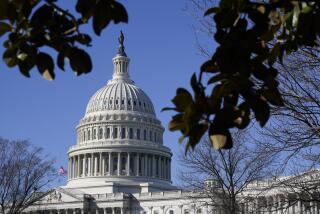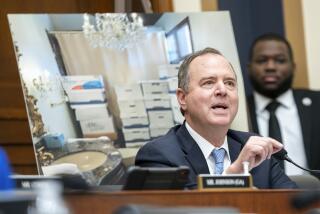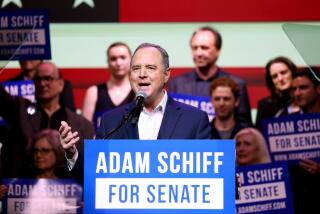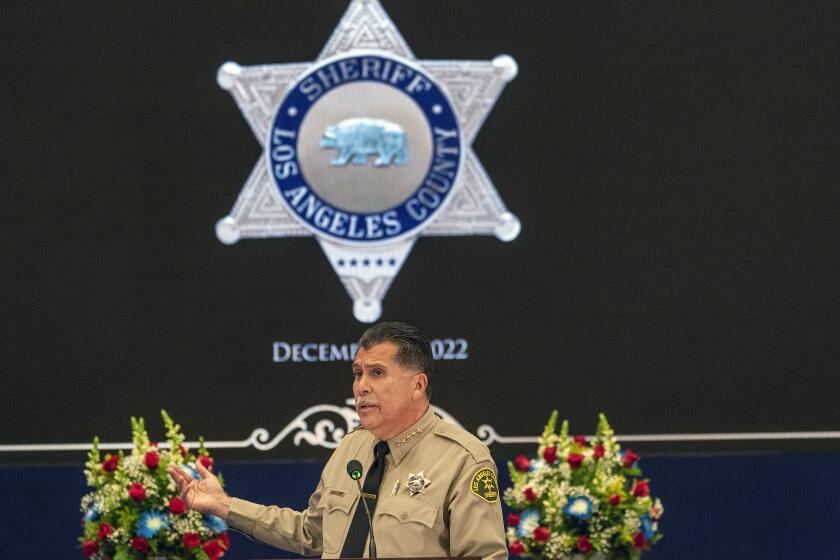Expect Democrats to be robust, not reticent, in wielding power
SACRAMENTO — With their new supermajority power, Democratic legislative leaders promise they won’t overreach. But bet on this: They’ll reach just as far as they believe is safe.
“Yeah, you’re darn right,” Senate President Pro Tem Darrell Steinberg (D-Sacramento) told me.
Democrats achieved a historic two-thirds-plus majority in both legislative houses on election day. That’s enough muscle to pass anything without Republican support, including constitutional amendments, which can be placed on a ballot without the governor’s signature.
A two-thirds majority also can override any gubernatorial veto. But that’s not likely to happen much, if at all. California governors possess extraordinary power to reward and punish.
But Democratic legislators do feel a responsibility — an obligation — to push their liberal constituents’ agendas while they have an opportunity. The electorate did, after all, arm them with these supermajorities. Why squander the power?
This doesn’t mean raising taxes immediately after voters approved Gov. Jerry Brown’s Proposition 30. In fact, Steinberg quickly stomped on one Democratic senator, Ted Lieu of Torrance, after Lieu proposed tripling the vehicle license fee back to its former level.
Steinberg has been widely quoted as observing: “The voters do not want us to burst out of the gate to raise more taxes.”
“We get the overreach warning,” he told senators at their swearing-in last week. “We acknowledge it.”
But he also said this, which hasn’t been much quoted:
“Frankly, I think you can focus too much on overreach because there is an equally compelling danger. It is the danger of being so cautious, so worried about creating controversy that we fail to take advantage of unprecedented opportunities.
“Power is by definition fleeting. Misuse it and you’ll lose. Fail to use it and it withers away.”
Steinberg told a story — conservatives might call it a “bleeding heart” tale — about visiting a “dental fair” after the last legislative session. Volunteer dentists were caring for poor people. In 2009, the Legislature stripped them of Medi-Cal dental coverage while trying to close a $42-billion budget deficit.
“What I saw I will never forget,” the Senate leader said. “Endless lines…. Working Californians, many of them…. They had gone years without any dental care and needed surgery for dental abscesses, needed a root canal, people who had lost their teeth and wanted reconstructive surgeries so that they could go out and apply for a job with pride.”
Restoring dental care for the poor is the type of spending-reach that Democrats probably will — and should — attempt.
Steinberg and Assembly Speaker John A. Pérez (D-Los Angeles) were both happy-talking as the Legislature convened.
“We have eliminated the structural deficit that has plagued California for years,” Perez told Assembly colleagues, a bit premature in announcing an end to red ink. He added that legislators were in position “to pursue the long-term investments and planning that will usher in the next great era of California’s history.”
Steinberg said: “One difficult era is ending in California, and now a new and better era is beginning.”
That optimism is a reflection of a gradually improving California economy and a recent report by nonpartisan Legislative Analyst Mac Taylor, the Legislature’s fiscal guru. He projected a relatively minor deficit of $1.9 billion for the next budget year, down from nearly $13 billion a year ago.
Taylor cautiously projected surpluses starting in 2014, with a caveat: “If a steady economic recovery continues and the Legislature and the governor keep a tight rein on state spending.”
All bets are off if Washington politicians allow the nation to fall off the so-called cliff into another recession. Surely one side will blink.
The brighter mood in the state Capitol mirrors public attitudes, according to a new poll by the Public Policy Institute of California.
The survey found that 44% of California adults believe that “things in California are generally going in the right direction” — the highest it has been since mid-2007. Two years ago, only 16% felt that way.
“It’s because of the election and the economy,” says the pollster, Mark Baldassare. “We are a blue state, and the election came out the way people voted.
“And folks are generally feeling more optimistic because of Prop. 30 passing. That takes pressure off the budget and schools.”
The Legislature is even drawing less scorn. Among likely voters, 26% now approve of the lawmakers’ job performance, and 61% disapprove. That’s still pretty pathetic. But two years ago it was 9% approval and 82% disapproval.
Voters generally like Brown. He gets 49% approval, 40% disapproval.
The governor, who tries to hug the center, will relish keeping his fellow Democrats in check.
“We’ve got to make sure over the next few years that we pay our bills, we invest in the right programs, but we don’t go on any spending binges,” Brown told reporters after the election.
Binges are relative.
“His general disposition is to be pretty cautious,” Steinberg told me. “On the other hand, he’s not a governor who’s afraid to take risks. I mean, high-speed rail was not exactly popular, and he went ahead with it.”
Pressed by Brown, the Legislature in July authorized spending the initial $8 billion to begin laying bullet train tracks. The ultimate cost is projected at $68 billion.
Steinberg offered legislators a sound suggestion: Assuming that budget surpluses ever do develop, sock away one-third in a rainy-day fund, use one-third to pay down debt and spend one-third to restore previously cut programs for poor people and students.
And, by the way, he told reporters, closing tax loopholes is not really raising taxes.
Well, yes it is. But you get the idea.
Democrats will reach as far as they can without getting their knuckles smacked by voters.
More to Read
Start your day right
Sign up for Essential California for news, features and recommendations from the L.A. Times and beyond in your inbox six days a week.
You may occasionally receive promotional content from the Los Angeles Times.







